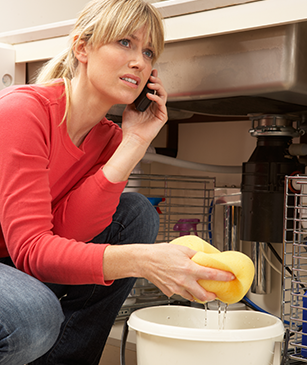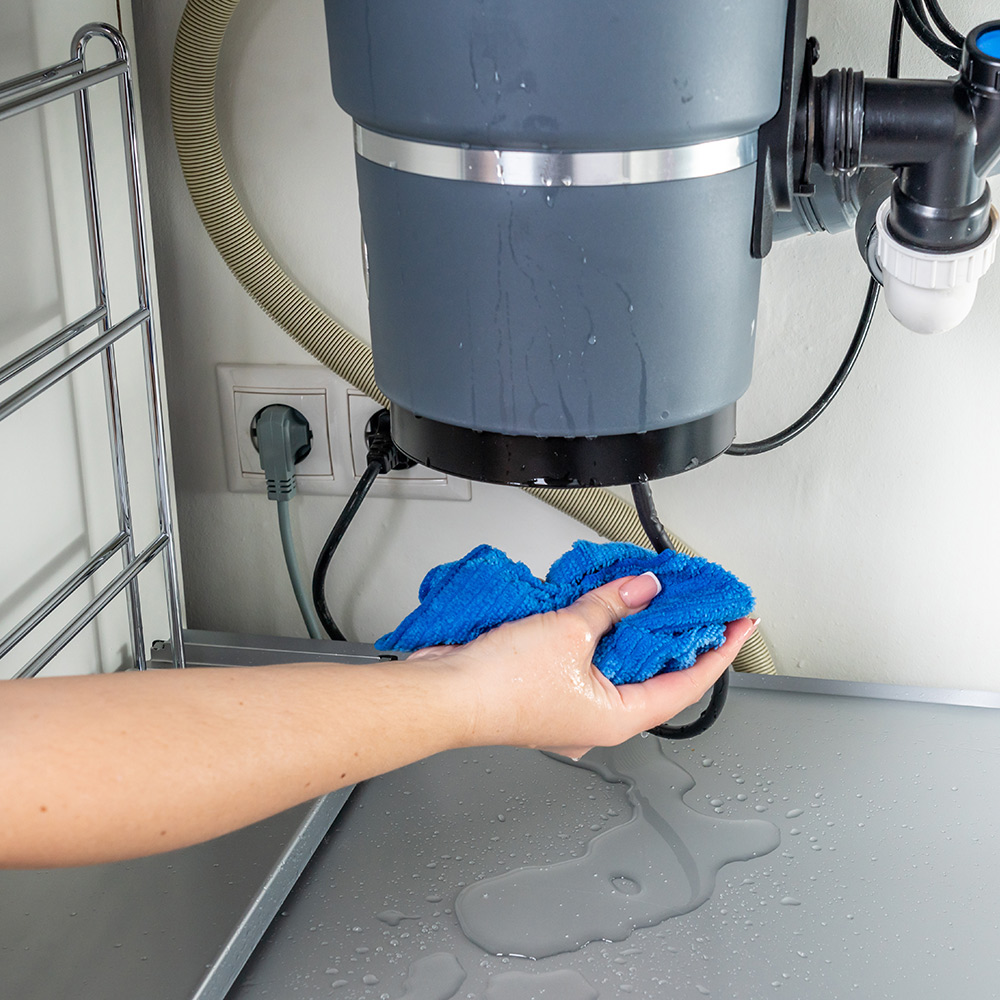Every person will have their private theory with regards to Garbage Disposal Leaking From Bottom.

Waste disposal unit are important kitchen devices that assist in disposing of food waste effectively. Nevertheless, a dripping waste disposal unit can be an aggravating and untidy trouble to take care of. Fortunately, numerous leakages can be dealt with easily with a few basic actions. In this article, we will certainly review how to take care of a dripping waste disposal unit effectively.
Introduction
Garbage disposals are mounted under cooking area sinks and are developed to shred food waste into smaller items, permitting it to travel through the pipes system quickly. While these gadgets are normally trustworthy, leakages can happen over time due to wear and tear, loosened links, or damages to the system.
Typical Reasons For Leaks in Garbage Disposals
Worn Seals and Gaskets
Seals and gaskets play an essential duty in protecting against water from dripping out of the waste disposal unit. Gradually, these elements can weaken, leading to leakages around the disposal device.
Loose Links
The connections between the waste disposal unit and the plumbing system can end up being loose gradually, causing water to leakage out during procedure.
Splits or Openings in the Disposal Device
Physical damage to the waste disposal unit, such as splits or openings in the housing, can likewise cause leakages.
Recognizing the Resource of the Leak
Before attempting to repair a leaking waste disposal unit, it is vital to determine the resource of the leak. This can typically be done via aesthetic assessment or by carrying out simple tests.
Visual Examination
Examine the garbage disposal device carefully for any type of indications of water leak. Pay attention to areas around seals, gaskets, and connection points.
Examining for Leakages
One method to examine for leakages is by running water through the disposal device and looking for any visible signs of leak.
Devices and Materials Needed for Repairing a Leaking Garbage Disposal
Before starting the repair work procedure, gather the needed devices and materials, consisting of a screwdriver, adjustable wrench, plumbing's putty, substitute seals or gaskets, and epoxy or patching material for repairing splits or holes.
Step-by-Step Overview to Repairing a Dripping Garbage Disposal
Shut off the Power
Prior to attempting any type of repairs, make sure that the power to the waste disposal unit system is shut off to stop the risk of electric shock.
Situate the Leak
Identify the precise area of the leak and figure out the reason.
Tighten up Links
Use a wrench to tighten any type of loosened links between the disposal unit and the plumbing system.
Change Seals or Gaskets
If the leakage results from worn seals or gaskets, get rid of the old parts and replace them with new ones.
Patching Cracks or Holes
For fractures or openings in the disposal device, usage epoxy or a suitable patching material to secure the damaged area.
Evaluating the Waste Disposal Unit After Fixing
As soon as the repair is complete, evaluate the garbage disposal by running water with it to make sure that the leakage has been settled.
Preventive Upkeep Tips to Avoid Future Leaks
To avoid future leaks, it is important to do regular upkeep on your garbage disposal. This consists of keeping it tidy, avoiding putting non-food items or tough objects down the disposal, and periodically checking for leakages or other concerns.
Final thought
Finally, dealing with a dripping garbage disposal is a fairly simple process that can be completed with fundamental devices and materials. By adhering to the steps detailed in this write-up and exercising precautionary maintenance, you can maintain your waste disposal unit in good working problem and avoid costly repair work in the future.
HERE’S HOW TO FIX YOUR GARBAGE DISPOSAL
WHAT TO DO IF SOMETHING IS STUCK IN YOUR GARBAGE DISPOSAL
If the impeller won’t turn, there’s probably something stuck in the disposal. It could be a steak bone or peach pit, although plumbers report pulling all sorts of inappropriate objects out of disposals, such as bottle caps or aluminum foil. Make sure power to the disposal is off, and look inside to see if you can see the source of the jam.
Never stick your fingers in a disposal. Pull out anything you see with tongs or pliers.
If the disposal still won’t work, it may be time to call a plumber or consider buying a new disposal. GEM Plumbing & Heating is here for all of your garbage disposal needs.
WHAT TO DO IF YOUR GARBAGE DISPOSAL DRAIN IS CLOGGED
Take everything out from underneath your sink and put a bucket or other container under your disposal to catch any water that drains out. Disconnect your disposal from the power supply. If it’s plugged into a wall outlet, unplug it. If it’s hardwired into an electrical box, go to the electrical panel and turn off the breaker for the disposal. Pour ¼ cup of baking soda into the drain, followed by ½ cup of white vinegar. Give the solution a few minutes to fizz and do its work. Look into the disposal with a flashlight to see if you can see an object that might be causing the clog. If you see it, remove it using tongs or pliers. MORE TIPS ON DEALING WITH A CLOGGED GARBAGE DISPOSAL
Never use drain cleaner in a garbage disposal. It can damage the plastic parts inside the disposal. You can also be splashed with the caustic liquid while working to clear the clog. Beware! Never stick your fingers into a garbage disposal. Trust us — not a good idea. In many instances, your dishwasher drains through your garbage disposal. This allows the disposal to grind any large food particles that may be drained out of your dishwasher. There are some jurisdictions, however, where the plumbing code prohibits such a connection. WHAT TO DO WHEN YOUR DISHWASHER DRAINS THROUGH THE DISPOSAL
Run some water in the sink so your plunger has at least a ½-inch of water to create a seal and plunge vigorously up and down several times. You may need to repeat this several times. Run hot water down the drain to clear any residue that remains.

I stumbled upon that review about Why Is while browsing the web. You should take a moment to distribute this entry if you enjoyed it. Thanks for your time invested reading it.
Website